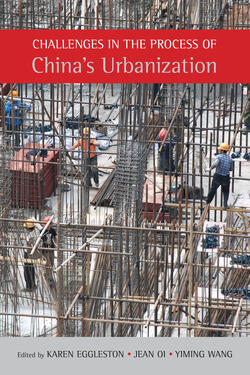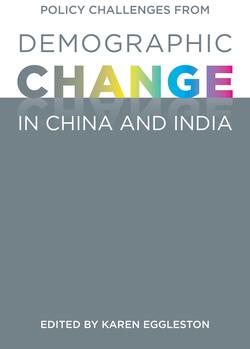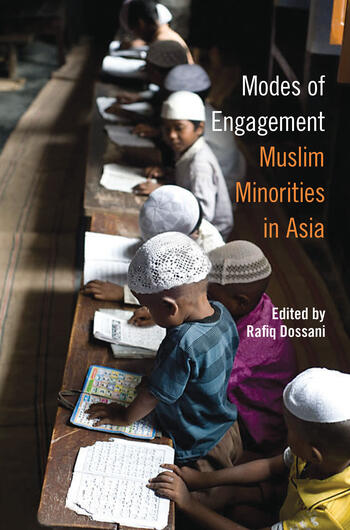Healthy Aging in Asia

Desk, examination, or review copies can be requested through Stanford University Press.

Desk, examination, or review copies can be requested through Stanford University Press.

Lee Jong-Seok served as vice-secretary of South Korea’s National Security Council and as its unification minister under the Roh Moo-Hyun administration (2003–08). After Roh’s tragic death in 2009, Lee resolved to present a record of the so-called participatory government’s achievements and failures in the realm of unification, foreign affairs, and national security.
Peace on a Knife’s Edge is the translation of Lee’s 2014 account of Roh’s efforts to bring peace to the Korean Peninsula in the face of opposition at home from conservative forces and abroad from the Bush administration’s hard stances of “tailored containment” and its declaration of the North as part of the “axis of evil.” Lee’s narrative will give American readers rare insights into critical moments of Roh’s incumbency, including the tumultuous Six-Party Talks; the delicate process of negotiating the relocation and reduction of United States Forces Korea; Roh’s pursuit of South Korea’s “autonomous defense”; conflicts with Japan over history issues; and the North’s first nuclear weapons test.
Desk, examination, or review copies can be requested through Stanford University Press.
The Inside Story of Roh Moo-hyun's North Korea Policy

The same institutions that enabled China’s massive urbanization and spurred its economic growth now require further reform and innovation.
To address the issues facing the next phase of the nation’s transformation, the National New Urbanization Plan (2014–20) set ambitious targets for sustainable, human-centered, and environmentally friendly urbanization. This volume explores the key institutional and governance challenges China will face in reaching those goals. Its policy-focused contributions from leading social scientists in the United States and China explore aspects of urbanization ranging from migration and labor markets to agglomeration economies, land finance, affordable housing, and education policy. Subjects covered in the eleven chapters include:
Examination copies: Shorenstein APARC books are distributed by Stanford University Press. You can obtain information on obtaining an examination copy at their website.

The world’s two most populous countries face numerous policy challenges from rapid demographic change. Drawing on social science expertise from China, India, and the United States, the contributors examine the social and economic challenges for policies across a range of domains, from China’s changed family planning policies and India’s efforts to address gender imbalance, to both countries’ policies regarding old-age support, human capital investment, poverty alleviation, and broader issues of governance.
Sections focus on:
Desk or examination copies can be ordered from Stanford University Press.

Student mobility in Asia has reached unprecedented levels. Inbound and outbound student mobility creates opportunities for Asian societies but also challenges, such as growing diversity and brain drain. This book examines these and other related, timely issues for the case of South Korea, a major player in the internationalization of higher education in Asia, and draws on the comparative experiences of other key players in the Asia-Pacific region—Japan, China, Singapore, and the United States. By doing so, it offers critical perspectives on the internationalization of Korean higher education as well as innovative, policy-relevant solutions for Asian countries undergoing similar challenges. It will be a valuable addition to the growing literature on comparative and international education in Asia and can aid university administrators and policymakers striving to internationalize their higher education systems to meet new challenges.
Desk, examination, or review copies can be requested through Stanford University Press.
Challenges and Opportunities in Comparative Perspective

Americans think of South Korea as one of the most pro-American of countries, but in fact many Koreans hold harsh and conspiratorial views of the United States. If not, why did a single U.S. military traffic accident in 2002 cause hundreds of thousands of Koreans to take to the streets for weeks, shredding and burning American flags, cursing the United States, and harassing Americans? Why, too, the death threats against American athlete Apolo Ohno and massive cyberattacks against the United States for a sports call made at the Utah Winter Olympics by an Australian referee?
These are just two of the incidents detailed in David Straub’s book, the story of an explosion of anti-Americanism in South Korea from 1999 to 2002. Straub, a Korean-speaking senior American diplomat in Seoul at the time, reviews the complicated history of the United States’ relationship with Korea and offers case studies of Korean anti-American incidents during the period that make clear why the outburst occurred, how close it came to undermining the United States’ alliance with Korea, and whether it could happen again.
Anti-Americanism in Democratizing South Korea is recommended reading for officials, military personnel, scholars, students, and business people interested in anti-Americanism, U.S.-Korean relations, and U.S. foreign policy and military alliances.
David Straub has been associate director of the Korea Program at Stanford University’s Walter H. Shorenstein Asia-Pacific Research Center since 2008, following a thirty-year diplomatic career focused on U.S. relations with Korea and Japan.
Desk, examination, or review copies can be requested through Stanford University Press.

From 2007 to 2011 South Korean filmmaker and newspaper reporter Hark Joon Lee lived among North Korean defectors in China, filming an award-winning documentary on their struggles. Crossing Heaven’s Border is the firsthand account of his experiences there, where he witnessed human trafficking, the smuggling of illicit drugs by North Korean soldiers, and a rare successful escape from North Korea by sea.
Desk, examination, or review copies can be requested through Stanford University Press.

Of Asia’s 800 million Muslims, 215 million are minorities within their countries. These Muslim minorities have experienced a persistent decline in their socioeconomic and political status. Along with this decline, they are increasingly identified by their faith and largely accorded no other identity for civic relations. Why have these Muslim minorities been particularly affected during a time of unprecedented opportunities for the mainstream in Asia’s unprecedented era of growth and rising freedoms?
Using detailed analyses of China, India, and the Philippines, Modes of Engagement argues that key factors in this phenomenon include the linkage between socioeconomic decline, loss of political power, and narrowing of identity; nationalism and its associated connotations of the assimilation of minorities; the weakness of civil society generally in Asia; and the rise in regional and global alliances for security and trade.
Contributors include Wajahat Habibullah (National Commission for Minorities and National Institute of Technology, India), Rakesh Basant (Indian Institute of Management), Dru C. Gladney (Pomona College), and Joseph Chinyong Liow (Nanyang Technological University’s S. Rajaratnam School of International Studies, Singapore).
Rafiq Dossani is a senior economist at the RAND Corporation. His research interests include regional integration, security, and education. Previously, Dossani was a senior research scholar at the Shorenstein Asia-Pacific Research Center and director of the Stanford Center for South Asia.
Examination copies: Shorenstein APARC books are distributed by Stanford University Press. Contact them for information on obtaining examination copies.
Muslim Minorities in Asia

South Korea and Vietnam established diplomatic relations only twenty years ago. Today these former adversaries enjoy unexpectedly cordial and rapidly expanding bilateral ties. Leaders of the two nations—perceiving broadly shared interests and no fundamental conflicts—seek to leverage their subregional influence on behalf of common or complementary policy goals. Today they often profess a “middle power” identity as they explain their foreign policy in terms of such classical middle power goals as regional peace, integration, and common goods.
Broadly similar in many respects, South Korea and Vietnam are nonetheless sufficiently different that a comparison can yield interesting insights—yet there is a dearth of systematic comparative work on the two. While holding a range of views on the contentious concepts of middle power and national identity, the contributors to Asia’s Middle Powers? help readers, both academic and policy practitioners, to gain an enhanced appreciation of South Korea and Vietnam’s regional behavior and international strategies
The publication of Asia's Middle Powers was made possible by the generosity of the Koret Foundation of San Francisco, CA.
Desk, examination, or review copies can be requested through Stanford University Press.
The Identity and Regional Policy of South Korea and Vietnam

Kim Jong-il once declared he would transform North Korea into a "great and powerful country" by 2012, apparently believing that nuclear weapons would compel the international community to engage on his terms. With no such prospect in sight, North Korea faces a multitude of intractable problems. Will North Koreans accept his son as their leader, and will he embrace new thinking to solve the country's problems? Why do North Korean leaders resist reform of an economic system that impoverishes the people? Can a country so dependent on outside help continue to defy the international community?
In Troubled Transition, leading international experts examine these dilemmas, offering new insights into how a troubled North Korea may evolve in light of the ways other command economies and totalitarian states--from the Soviet Union and East Germany to Vietnam and China--have transitioned.
The publication of Troubled Transition was made possible by the generosity of the Koret Foundation of San Francisco, CA.
Desk, examination, or review copies can be requested through Stanford University Press.
North Korea's Politics, Economy and External Relations